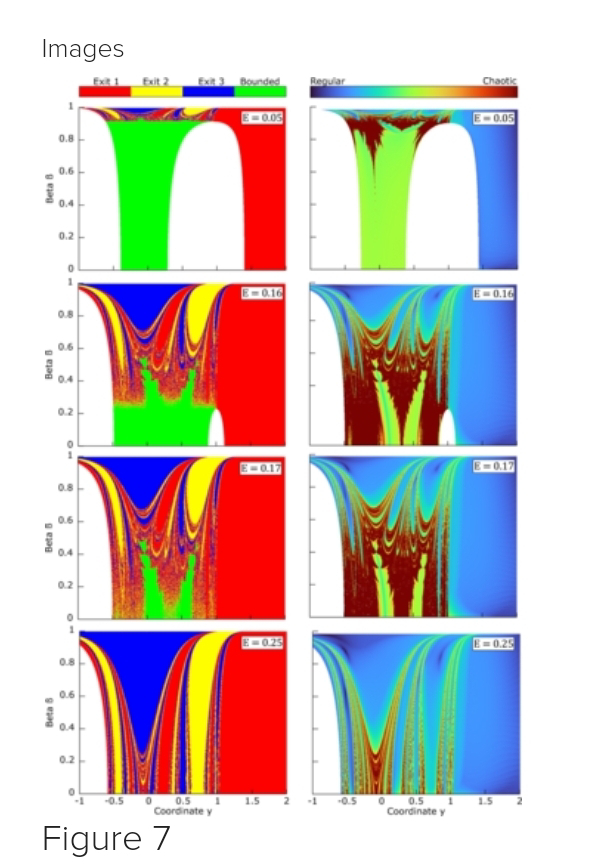AA' paper << examines self-mixing in active nematics, a class of fluids in which mobile topological defects drive chaotic flows in a system comprised of biological filaments and molecular motors. (They) present experiments that demonstrate how geometrical confinement can influence the braiding dynamics of the defects. >>️
<< Notably, (AA) show that confinement in cardioid-shaped wells leads to realization of the golden braid, a maximally efficient mixing state of exactly three defects with no defect creation or annihilation. >>
<< Increasing the size of the confining cardioid produces a transition from the golden braid, to the fully chaotic active turbulent state. >>️️
Fereshteh L. Memarian, Derek Hammar, et al. Controlling Chaos: Periodic Defect Braiding in Active Nematics Confined to a Cardioid. Phys. Rev. Lett. 132, 228301. May 28, 2024.
Also: chaos, turbulence, particle, in https://www.inkgmr.net/kwrds.html
Keywords: gst, chaos, turbulence, active nematics, cardioid




